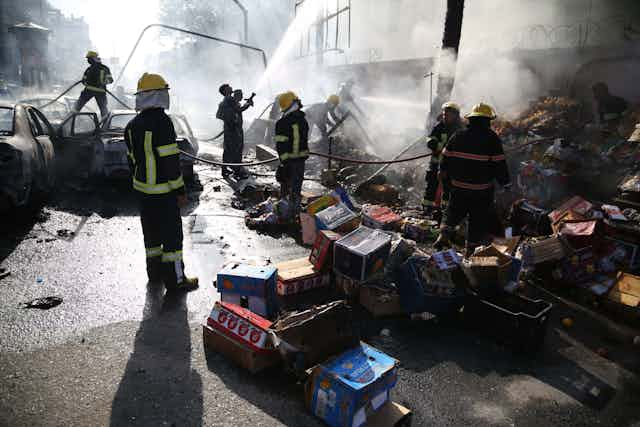One of the participants in a research project I am working on was recently killed in the Afghan city of Jalalabad in a suicide bombing attack targeting Sikhs and Hindus. The young women I work with who had interviewed him and his family are shattered, and his distraught wife in agony.
Like so many others over the past few years, he was killed by the so-called Islamic State (IS). And like other victims of IS in Afghanistan, he was targeted because of his religion. He didn’t work for the government or foreign forces; he was a shopkeeper, trying to do his best for his family and his community.
As security in Afghanistan has deteriorated over the past four years, doing the best for a family has meant sending sons and daughters abroad where they would be safe, where they would have a future. And the man who worked with us sent his family to Europe, to Britain and Germany, where they claimed asylum. Some of his family have been lucky and have received asylum; others are waiting to hear, and others have been rejected.
As I vented my grief and rage to a colleague, she asked: “Why are you so angry at the EU? They didn’t kill him.” No, he wasn’t killed by Emmanuel Macron or Theresa May or Angela Merkel. But this shouldn’t be about luck, or having the money to pay smugglers, the strength and the courage to walk for miles, climb mountains and evade armed police and their dogs. Asylum shouldn’t be a version of the Hunger Games – yet in the absence of safe and assured legal routes to Europe, that is what it has become.
Turned back
Only days before the Jalalabad attack, the EU heads of government gathered together to discuss future plans, and top of the agenda was migration. The goal was not to find ways to enable people at risk to reach Europe safely, not to reaffirm a serious and substantive commitment to offer asylum to people fleeing war and persecution. It was about appeasement – appeasing the worst of Europe by abandoning the core values on which it was established.
But the agreement is already falling apart because, as Europeans with even a minimal knowledge of history know, concessions do not appease monsters; they feed them, with devastating consequences.
At summit after summit, hours of discussion and reams of paper have been wasted on shameful proposals to build more fences and more camps inside and outside Europe. Billions of euros are being spent to push back people trying to reach safety.

While a photo of drowned child Aylan Kurdi unleashed public soul-searching and a media frenzy in 2015, in June 2018, the sight of three babies drowned off the coast of Libya was met with widespread indifference. And instead of dealing with the European policies that force people to use smugglers, the focus is on disrupting their “business model”. This neat managerial phrase completely overlooks the fact that the market for smugglers has been created by imposing controls on desperate people.
Europe’s bureaucrats and policymakers build fences, make asylum processes harsher, and in some cases tear gas children – all to deter people who dare to approach Europe seeking refuge. They rail against Donald Trump’s family separations policy, but chase away boats carrying parents with babies and pregnant women; in the Mediterranean as in the streets of Paris or Budapest, Europeans harass and punish those who try to protect or feed or shelter migrants and refugees.
Some in Europe justify these actions by blaming the parents that bring their children on such hazardous journeys. But the man killed in Nangarhar had chosen to stay in Afghanistan. He had rejected migration for himself, and asked only what he could do for Afghanistan. He loved the country that discriminated against him, and wanted to make it safe, wanted to rebuild and reconstruct. And that is why, though he travelled often to India, he always came back. That is why he went to Jalalabad to try and meet with the Afghan president, Ashraf Ghani. And that is why his life was taken from him.

